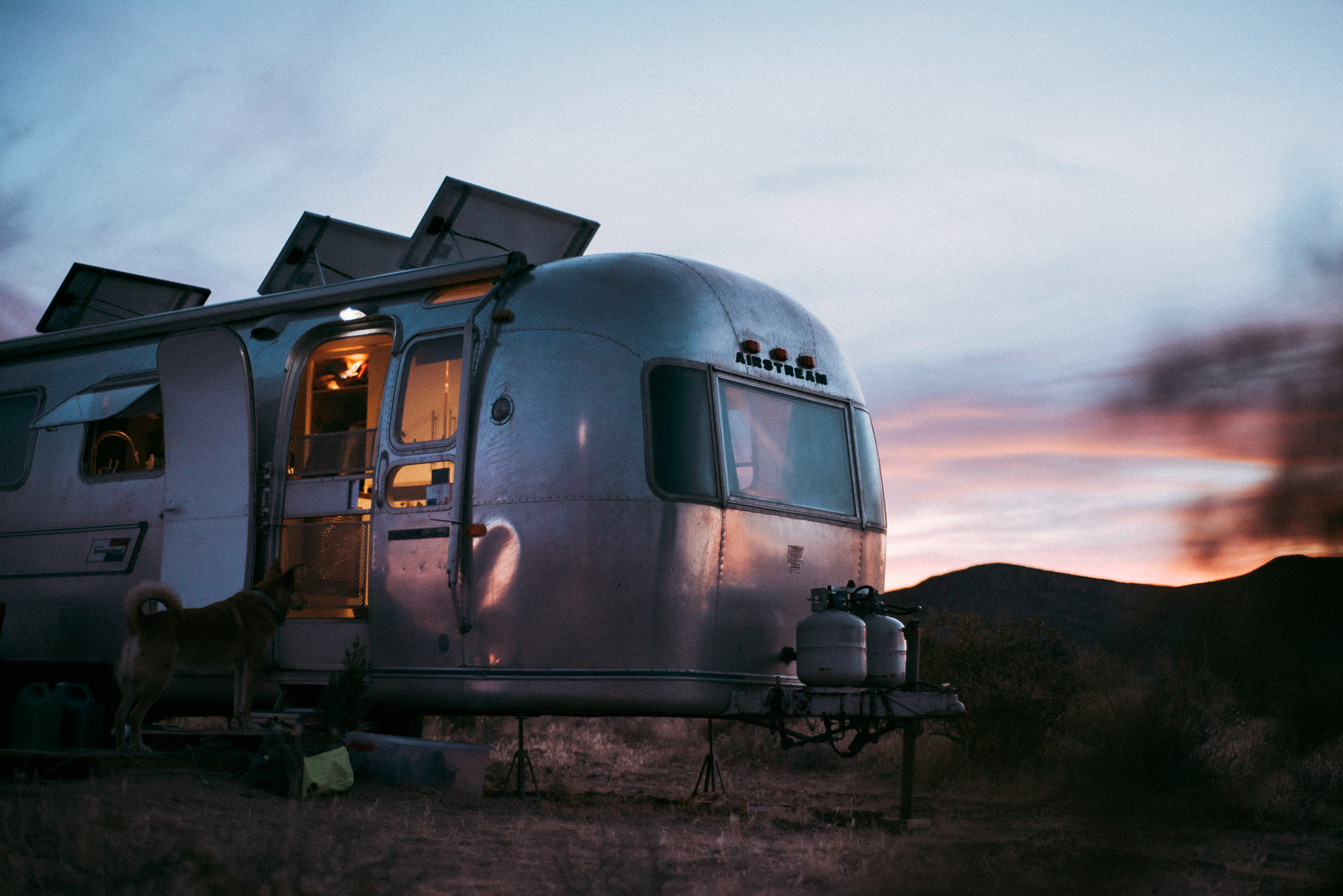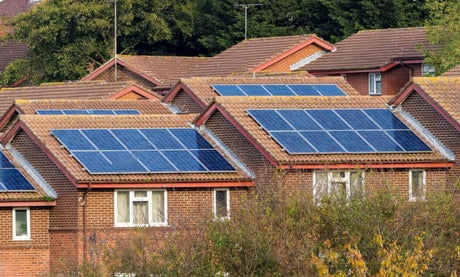Keeping yourself when working with electrical equipment and installing your panels
When many people think about going solar, they often talk about wanting to become more energy independent. Therefore, it also makes sense that a lot of those same people want to install their own solar system without hiring a contractor. Although it’s never been easier to install solar on your own thanks to the growing availability of solar panel kits, there are still a few essential safety considerations to keep in mind during the installation process.
Can I install my own solar system or should I hire a contractor?
Renogy solar panel kits make it easy to go solar on your own and include detailed instructions for how to install the equipment, but if you still have questions, we recommend you reach out to a professional for help. Solar panel kits include the essential components of any solar installation including solar panels, charge controllers, cables, and mounting hardware. This means you’ll still need to purchase an inverter and batteries to complete your set-up.
If you’re installing panels on a cottage, cabin, or home, do your research to see what your local building codes say and what permitting is required. Every jurisdiction is different.
Installing a system that will be tied to the grid presents some challenges, as many jurisdictions require that your installation is completed by a licensed contractor. This is due to safety reasons because you will be connecting to the grid, which could be dangerous if your installation was done incorrectly. We’d also recommend hiring a contractor to do your installation if you’re not comfortable with handling PV equipment or wiring, or anything in the solar installation process is confusing at all.

What does the installation process look like?
Once you’ve decided to go solar, we recommend following this timeline to ensure an efficient and safe system.
1. Determine how large of a system you’ll need to install
Understanding how large of a system you need should be the first thing you do once you decide to go solar. Having an accurate knowledge of your energy needs gives you a better idea of the costs and ensures you don’t under- or over-build a system. Learning that is easy. Simply input information about your lifestyle into the Renogy solar panel calculator to help you decide on your solar panel purchase.
2. Shop for a DIY solar panel kit
Solar panel kits make it easy to ensure that you have all the parts you need and that they will safely and efficiently work together. Renogy has a range of different solar panel kits for those interested in installing solar on their own, from home kits to smaller kits for those living a mobile lifestyle in a caravan or motorhome.
4. Select Your Batteries
If you’re going off-grid or want to have energy storage in your system, you’ll need to do some research to decide which deep cycle battery is best for you. The most common deep cycle batteries used for solar installations include flooded lead acid, absorbed glass matt, and lithium iron phosphate batteries. Lead acid batteries are the most inexpensive option and are available at most big-box and auto stores. Absorbed glass matt batteries store 10 to 15 percent more energy than lead acid batteries and charge up to four times faster. Lithium ion batteries are the most expensive options, but also last four times longer than lead-acid batteries and weigh much less. They also require very little maintenance or upkeep.
5. Permitting and Installation
As mentioned before,if you’re installing panels home, you’ll want to do your research to see what building codes say and what permitting is required. Once all your necessary paperwork is in place (if applicable to you), then it’s time for the actual installation of your panels and components. Renogy’s DIY kits include specifications and instructions about how to install the technology, but it never hurts to consult with a professional to ensure the job is done right.
What safety measures must you consider when working with solar panels?
There are some rules of thumb when it comes to ensuring a safe solar installation process.
- If mounting on a roof, secure yourself with a roof anchor tool: One of the most intimidating parts of the solar installation process is mounting panels to your roof. Indeed, it can be dangerous if you don’t take the right precautions. Always use a roof anchor tool. Using this could save your life if you happen to lose your footing on the roof. Anchors can be installed temporarily while you install panels. You can also permanently install them if you want to make it easy to safely access your panels in the future.
- Do not work alone: It’s always good to have a second pair of hands and eyes to assist you when installing solar. Additionally, if you’re working on a roof, it’s crucial to have someone who can assist you in case of emergency.
- Don’t work in the rain: Roofs can quickly get slippery in rainy weather. Working on panels in the rain can present challenges to physically mounting the equipment, as well as maneuvering yourself around the work area. It’s always best to wait until the weather is dry.
- Check for damage to equipment: Although we at Renogy take great care in our packaging and shipping of materials, sometimes equipment can get damaged in transit. Damaged components and wiring can lead to lower performing equipment, and could even potentially cause fires or other shorts. Always visibly check all of your equipment upon receiving a shipment, and double check connection points once pieces have been installed.
- Insulate yourself to protect yourself from electric shock: Direct current can give you a series shock if you are not careful. Always use insulated tools and rubber gloves, and don’t wear any conductive items, such as jewelry and watches. Last but not least, remember to adhere to all codes, regulations, and manufacturer’s guidelines when installing a solar system.
- When in doubt, talk to a solar expert: Last, but not least, if you’re uncomfortable or unsure about anything involved in the installation process, we recommend talking with or hiring an expert to help you get the job done safely.
Can you damage a solar panel by short circuit?
This is why properly installed fuses and circuit breakers are included in a system. Fuses and circuit breakers protect the wiring in your system from getting too hot and catching fire. They’re also there to protect devices from becoming damaged if there is a short circuit. If a short develops in your solar inverter, a fuse between it and the battery will prevent a potential explosion and it will cut the circuit fast enough to prevent the wires from getting too hot, or even catching fire. If your fuse is working correctly, it will safely disable the battery, wires, and AC/DC inverter.
You should also know how to install fuses with your solar panels. When you connect panels in series, there will be no increase in current flow so fusing is not required for this string. When your panels are connected in parallel, the current is additive. So if you have 4 panels each capable of up to 15 amps, then a short in one panel can draw all 60 amps towards that short-circuited panel. This will cause the wires leading to that panel to far exceed 30 amps causing that wire-pair to potentially catch fire. In the case of panels in parallel, a 30-amp fuse is required for each panel.
Conclusion
Installing solar panels isn’t for the faint of heart and does require some research and know-how to ensure a safe installation process. Always be sure to follow the manufacturer’s instructions on all your equipment and heed our above advice, from not working alone to insulating yourself to stay protected from shock. Do that and you’ll ensure a safe and seamless installation process.










